Coming in under the wire for 2025, my vote for GOTY.
For a while there it looked like Disney was going to single-handedly run the superhero genre straight into the ground, but they seemed to have read the room and correctly (IMO) decided to reduce their incessant release schedule of all things spandex. While I liked the Marvel movies well enough, and yes, even a few of the DC movies as well, I wouldn’t even notice if there were no more superhero products hitting the market; it’s never been a core thing for me. But if you combine the near infinite flexibility of what a superhero story can offer, throw in some real, actual humor, and give it to some stellar voice actors, all on top of fairly simple and open-ended gameplay, you get Dispatch.
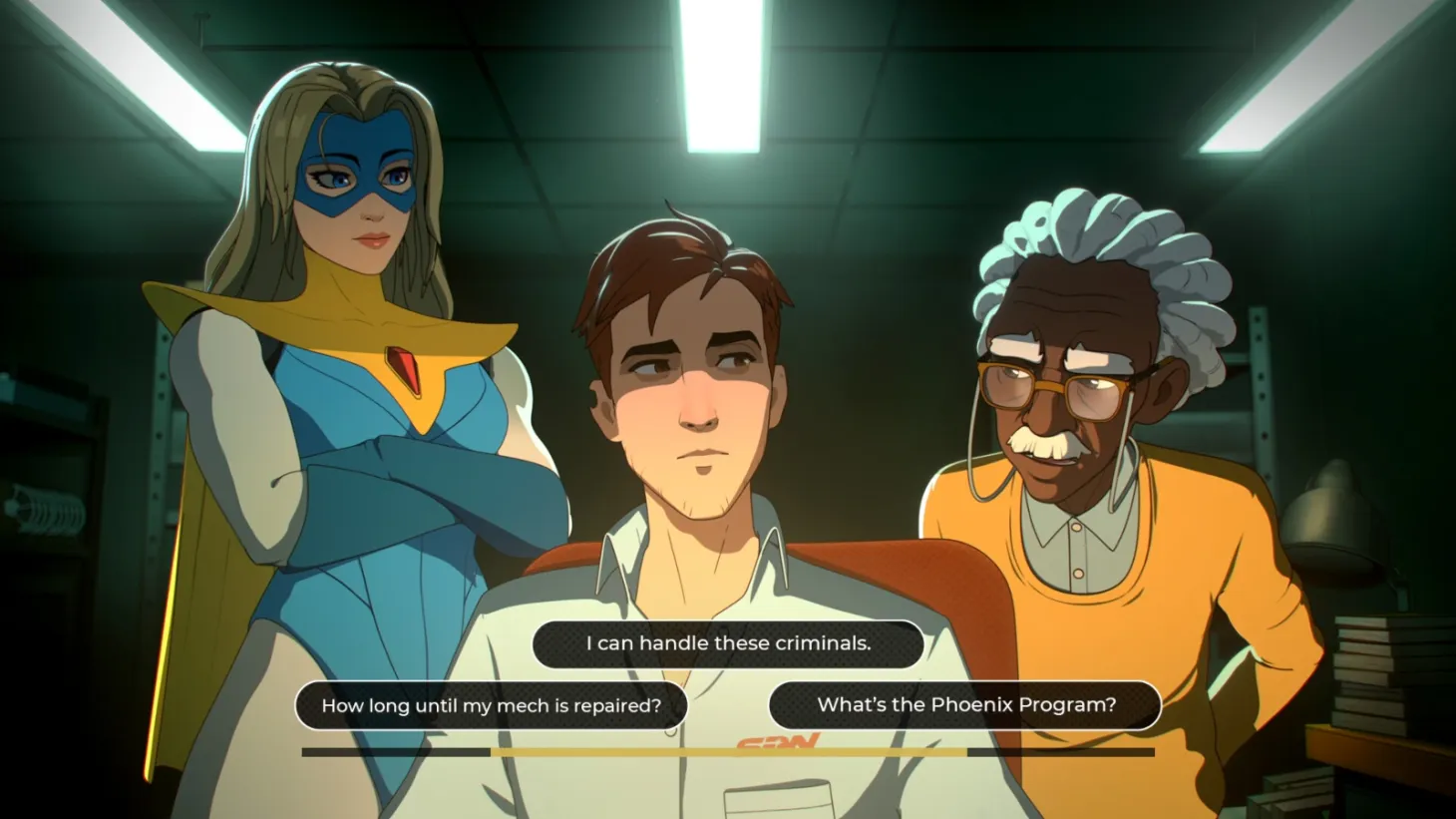
We play as Robert Robertson III, third generation superhero known as MechaMan. Both his grandfather and father once held the title, but both were killed in action, leaving “the third Robert Robertson” to take up the mantle of the “family business”. When an unfortunate decision leaves him without his mech suit, Robert is recruited by Blonde Blazer to work at the Superhero Dispatch Network, a “superhero response subscription service”.
The gameplay is true to it’s name: your job as Robert is to dispatch the SDN’s “grade Z heroes” to requests from subscribers around the city. The members of the Phoenix Program are all ex-villains who have been given a chance to redeem themselves, and Robert is the one who directs them on their missions.
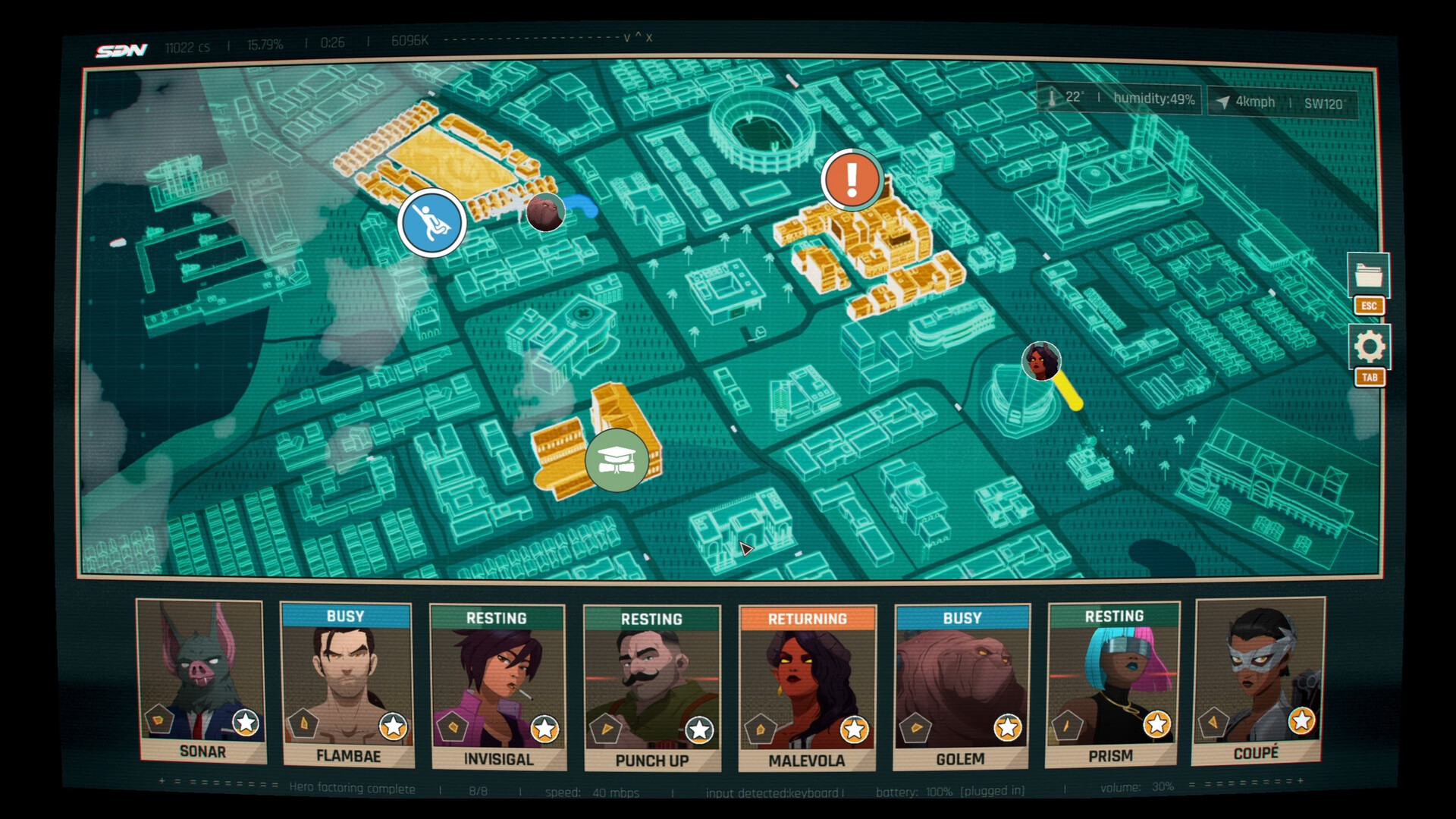
During a workday, notifications pop up on the map; each request has a requirement, but it’s often vague. “Diffuse the situation” might mean that the job is best suited to a hero who has more charisma than brawn, for example. Each hero has five attributes, measured on a graph, and it’s up to Robert/us to use that graph to make a decision on who to send to each mission. After the mission is complete, whether successful or not, the hero enters a resting state and cannot be sent out until it completes. Over time, we unlock each hero’s abilities and gain points that can be used to improve their stats in one of the five abilities. On occasion, multiple heroes can be sent to the same call, increasing their overall chances but also putting two heroes into cooldown. And some missions offer in-the-moment decisions which can affect the outcome.
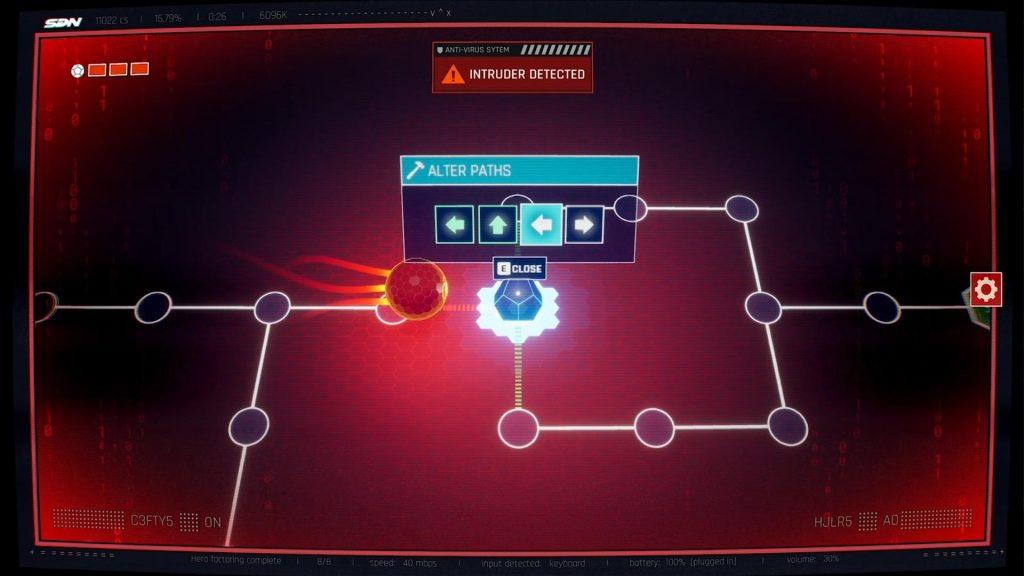
There’s also a hacking mini-game which Robert controls, and it uses directional keys at certain nodes to unlock pathways, reveal passwords, and basically slow things down, as some hacking attempts are timed. At one point I got a call to “subdue a malfunctioning bidet” and while I can’t understand how that falls under the responsible of the SDN, I handled it.
If this were all Dispatch offered — or if this were the actual reason to play Dispatch — I don’t think I’d be writing this post. As interesting as the dispatching gameplay is, it is, at its heart, just a mini-game. Instead, the dispatch and hacking features are basically interludes between what I’d consider the real draw: the animated story.
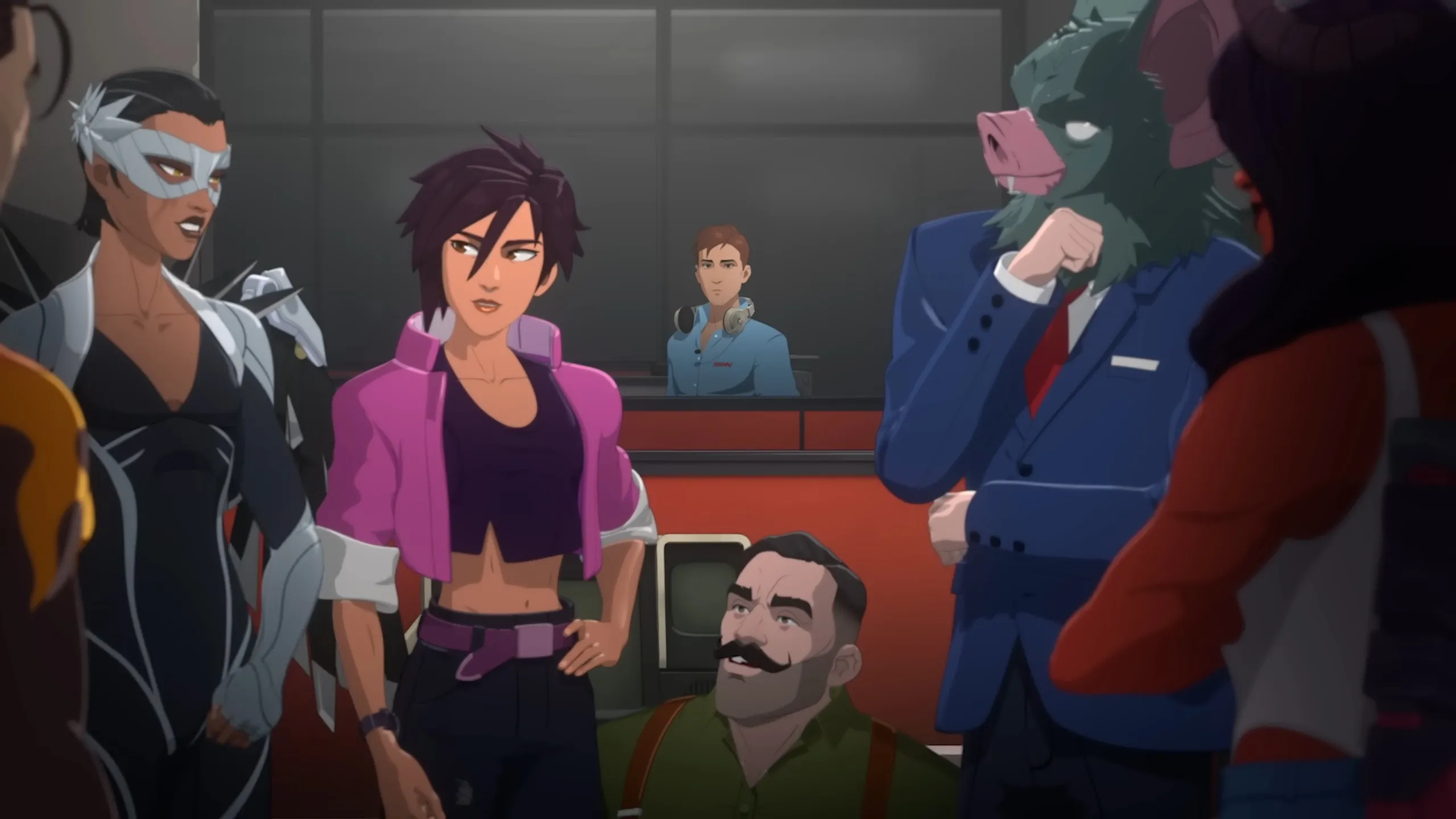
Dispatch is really 75% cut-scene and 25% actual gameplay, although there are dialog choices to be made during the animated sequences (which are often remembered by other characters) as well as optional QTE during action scenes. If you’ve played any of the Telltale games then you know what this entails. These extended cut-scene animation is extremely well done, and feel like they would be 100% at home as a broadcast series on some streaming platform. In fact, the game is episodic in nature, which each discrete episode featuring one (so far) dispatch session, and a whole lot of conversation and QTE animation. At the end of each episode, we get to see how our choices stacked up to those made by other players. I like this format because it provides a hard stopping point for a session, and that has allowed me to digest the experience in bite sized chunks.
What I appreciate is that the character interactions feel authentic and a lot of the humor is actually funny to me. The story riffs on all kinds of things like how cocky superheroes can be, how familial relations can be, and how the superhero genre offers all kinds of opportunities for some really dumb shit masquerading as something really serious. I think there’s also a real empathetic link between the player and Robert which might have something to do with being the decision-maker behind Robert’s interactions with others, and while I can’t control him directly — there’s no character autonomy during story-time — I still feel like I’m shaping his personality and place among his co-workers.
I had held off on starting Dispatch for a few days because I was only fence about recording it, but opted not to because I felt that maybe the story would be best experienced in the context of the game by a player, not by someone who was watching someone else play. Being able to make decisions, and have those decisions affect the story in a near seamless way is one of the big draws of these kinds of titles. While Dispatch would be an animated series I’d actually watch, being a part of it adds a lot to an already stacked production and pretty decent gameplay concept.



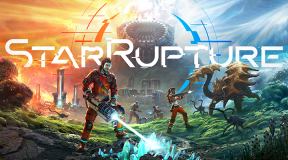


2 Comments
Tipa
November 4, 2025 - 7:28 amOkay, so I guess it’s a little more than just “9-1-1 Operator” with superheroes…
The plot reminds me of that old comic/show “Powers” about a cop who was previously a superhero until a villain drained his powers, and now investigates superhero murders.
Scopique
November 4, 2025 - 8:59 amYes! It’s very much like that, as Robert is ultimately trying to avenge the death of his father, so he’s also doing his own leg-work to track down the supervillain who killed him.
Comments are closed.